Vauxhall has given Autocar fresh insight into the most significant new car the British brand will bring to market in a generation: the pure-electric Corsa-e.
With deliveries starting in April, prices from £26,490 and a WLTP-certified range of 205 miles, the Corsa-e will be assembled on the same lines as petrol and diesel variants at the Zaragoza plant in Spain, where the regular Corsa has been built since the first generation was launched in 1982.
The lithium ion battery pack, consisting of 80 modules made up from 216 cells supplied by Chinese firm CATL, is currently produced at the PSA Group’s plant at Vigo, north-west Spain. However, PSA acquired Vauxhall and Opel in 2017 and there is now talk of repurposing Opel’s Kaiserslautern manufacturing facility in southwestern Germany for full-time battery production.
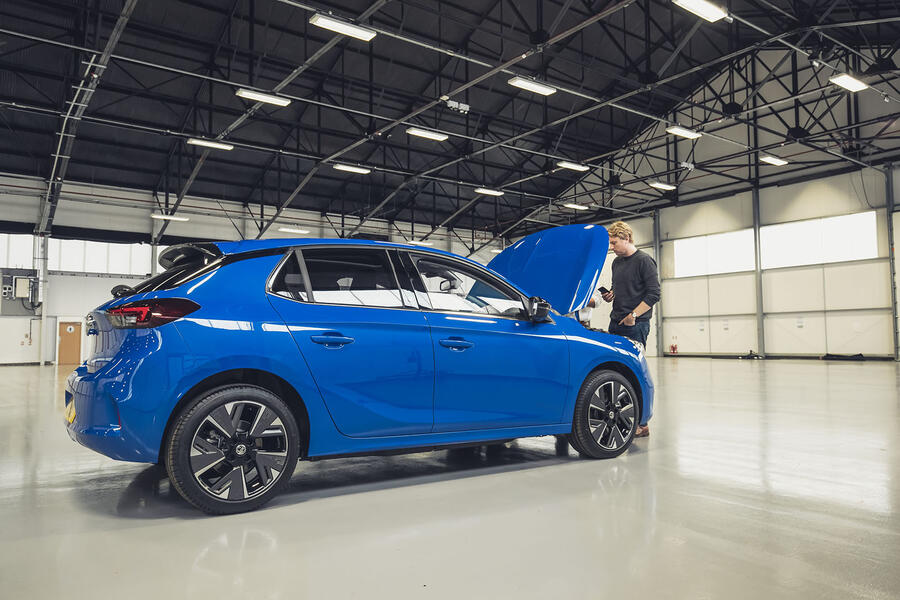
The broad strategy is to offer electricity as simply a third powertrain option for Corsa customers unfamiliar with the new technology. As such, the Corsa-e will look and feel similar to its petrol and diesel range mates. PSA’s CMP platform has duly been designed to help mitigate the usual EV drawbacks.
Thomas Wanke, project leader for the new Corsa, said the H-shaped battery pack’s three elements – there’s a smaller portion beneath the front seats and a larger portion beneath the rear bench, with the two linked by cells placed where the exhaust would normally sit – mean occupant space and boot capacity are identical to those of diesel and petrol versions of the Corsa, although the rear axle is wider and its central portion set further back to accommodate more battery cells.
The charging port sits where the fuel filler would usually be found. If the Vauxhall Corsa-e has an ace card, it’s that it can charge at speeds of up to 100kW as standard. This is double the rate offered by certain rivals and allows the battery to take on 160 miles of range in around 30 minutes.
We ride shotgun in the Corsa-e:
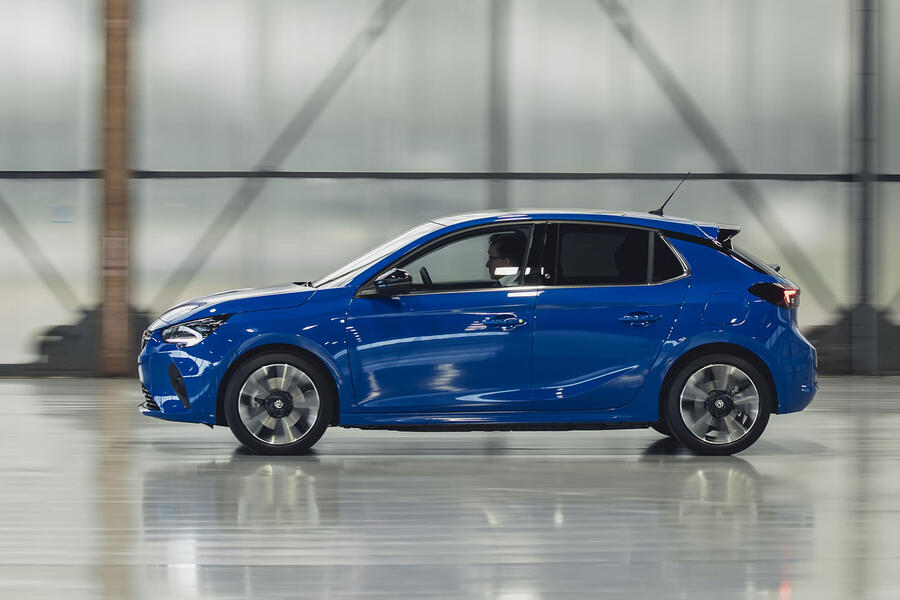

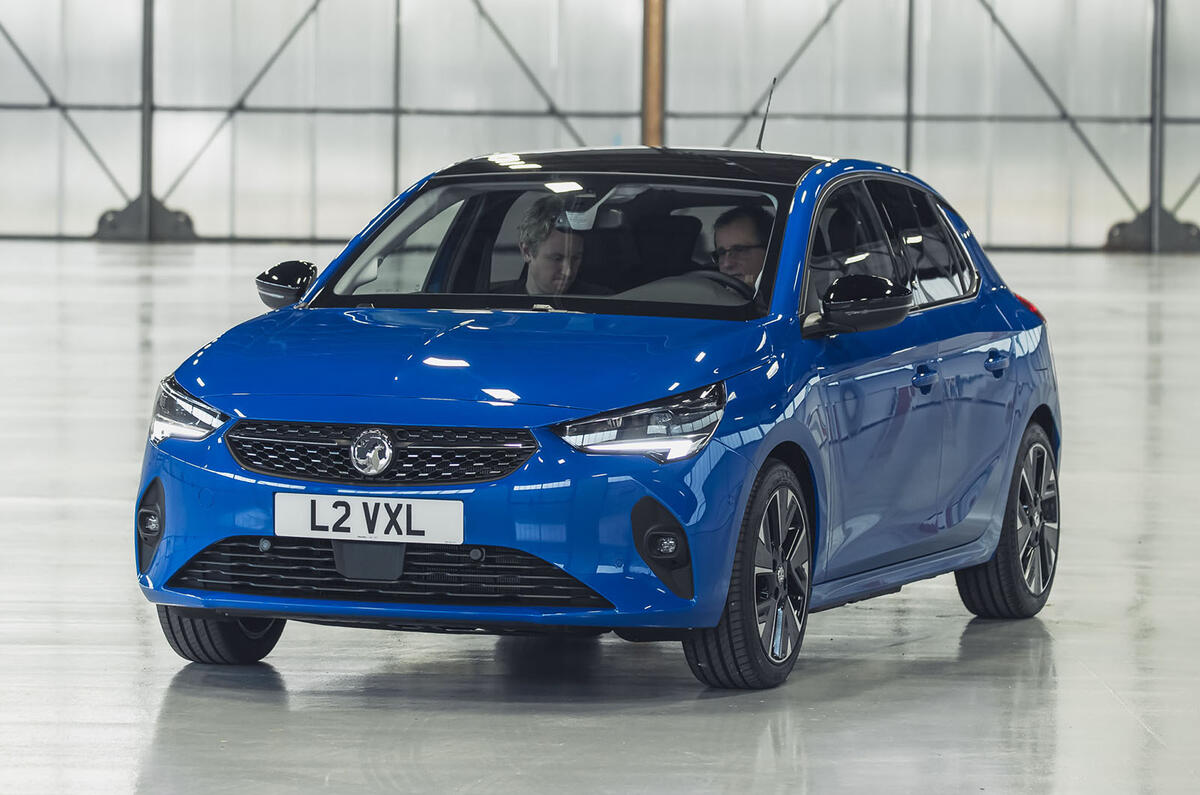
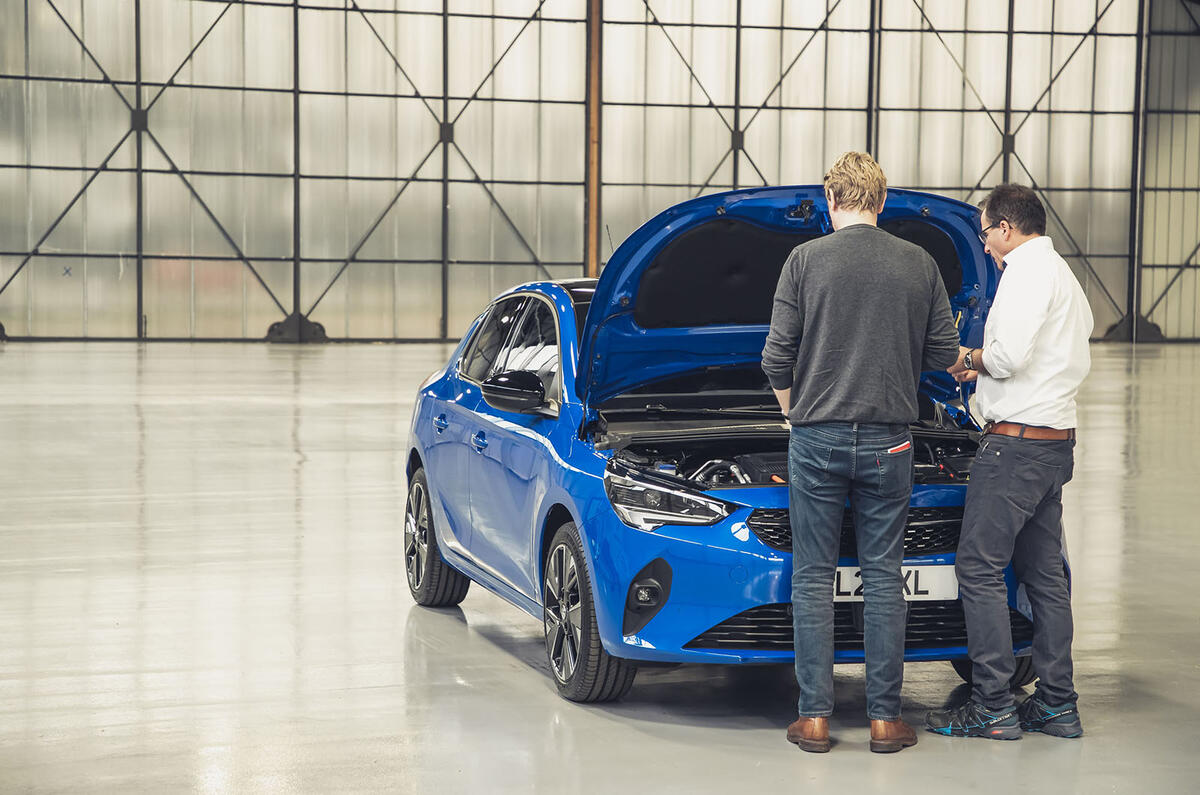
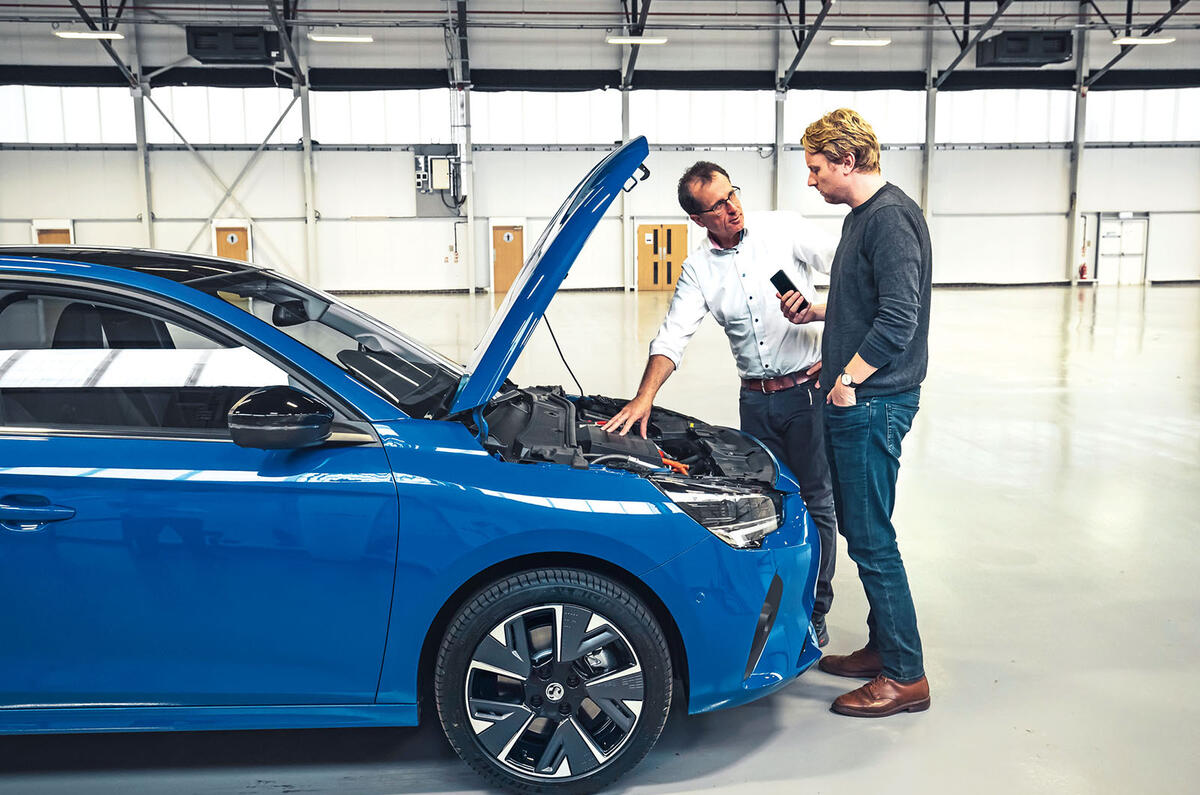
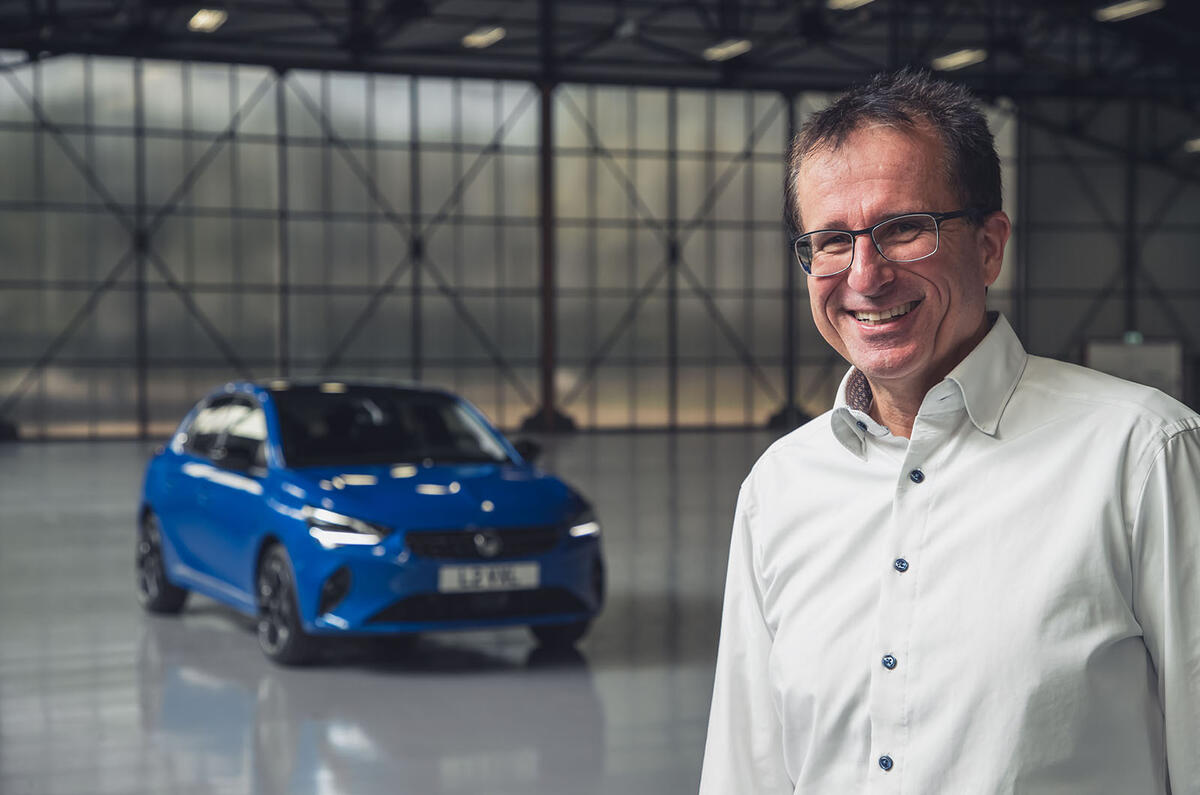
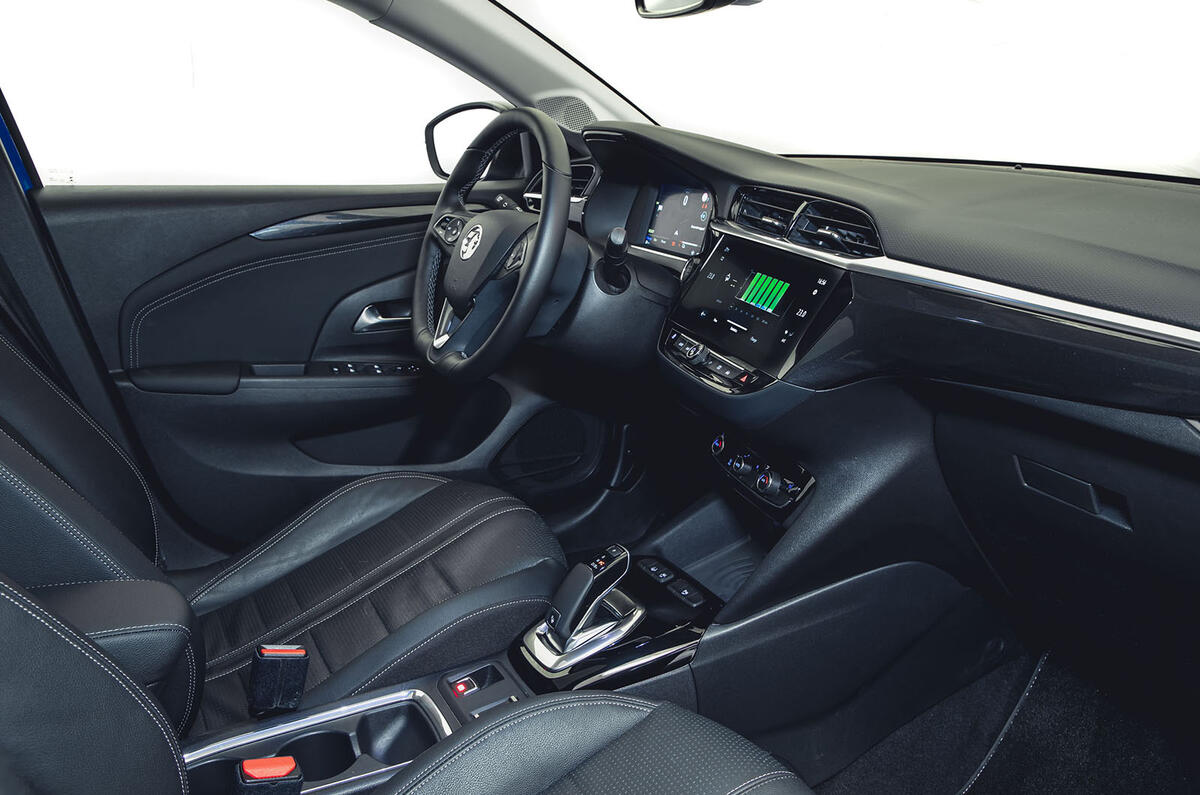
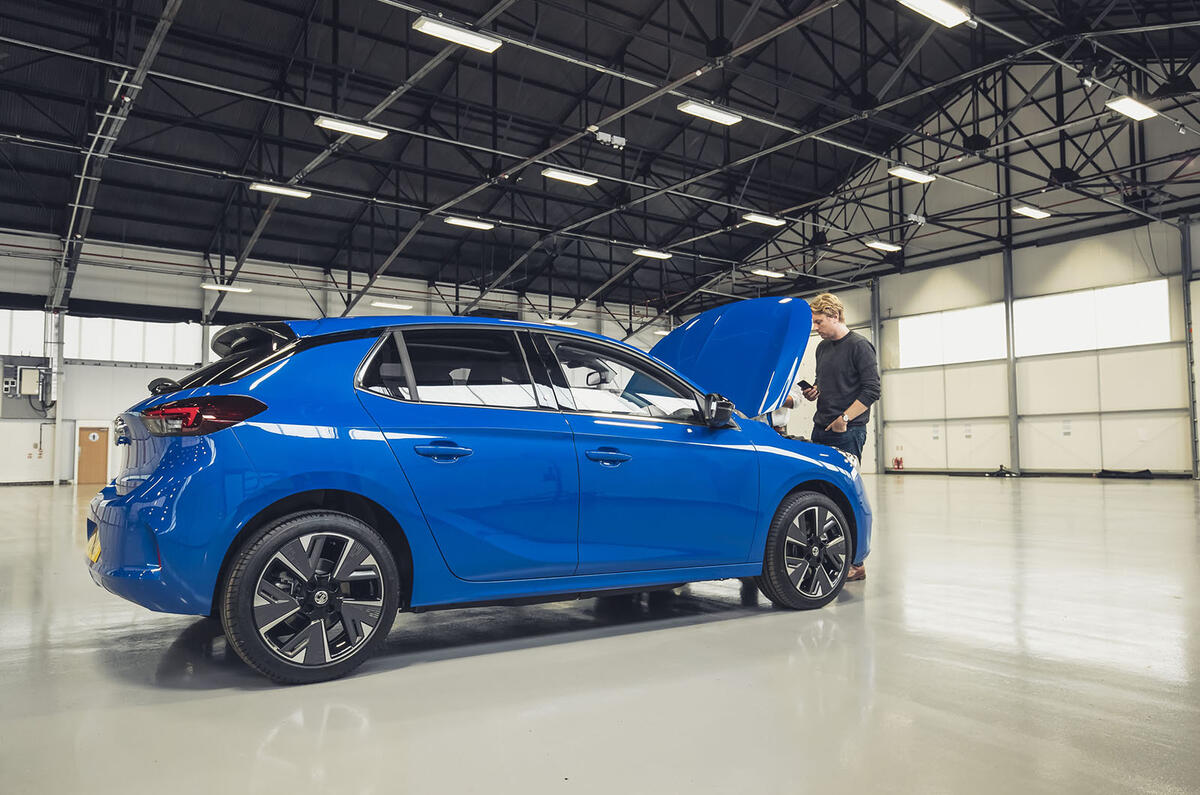
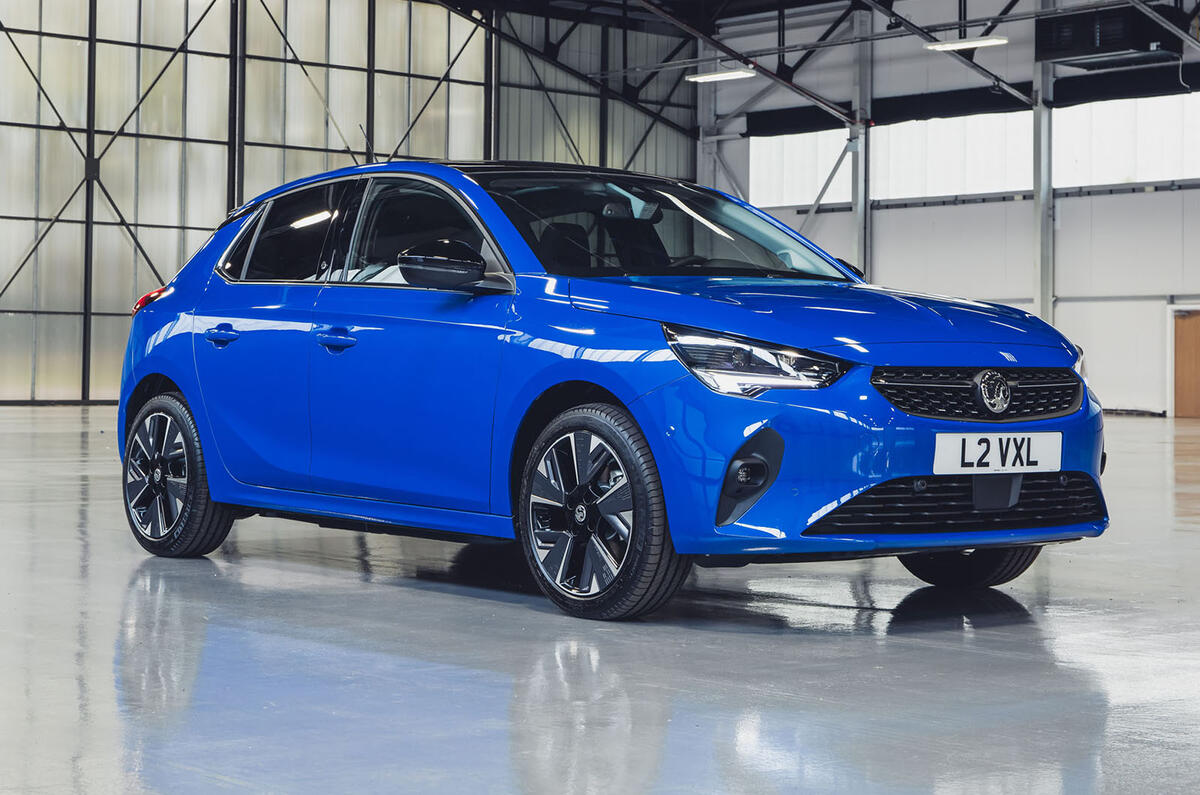
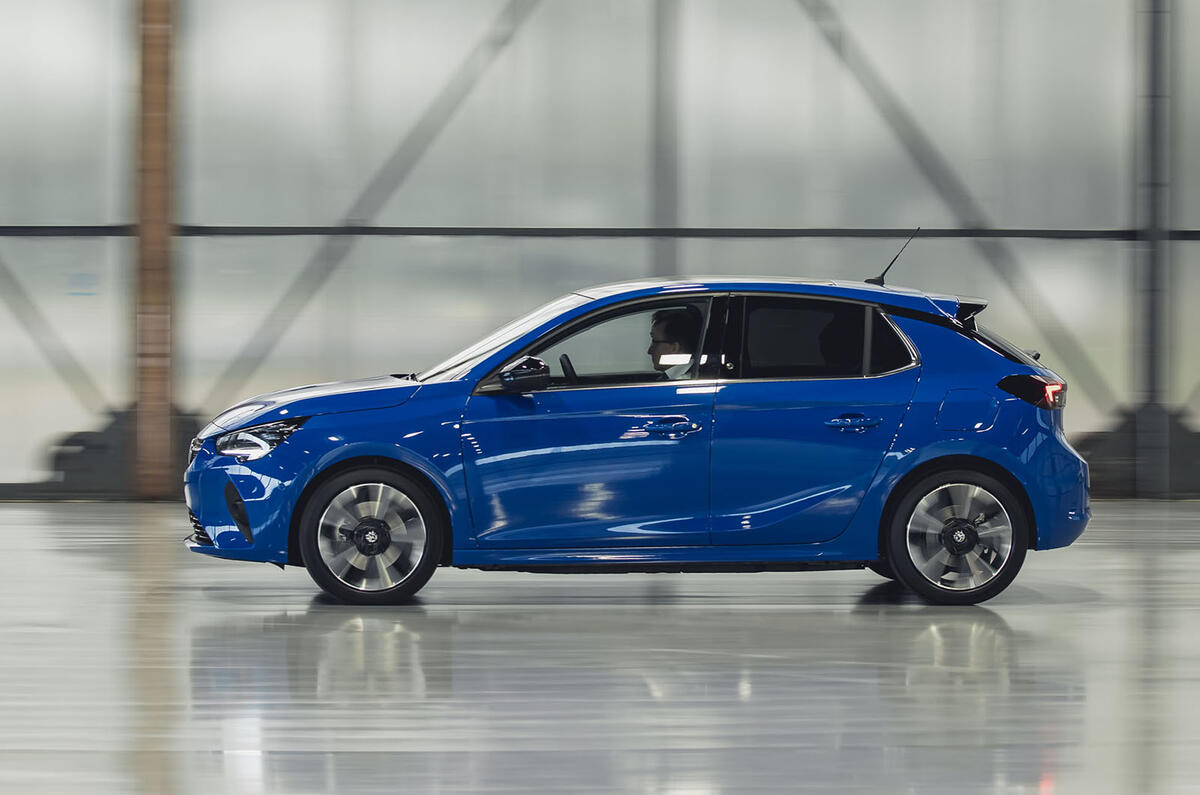
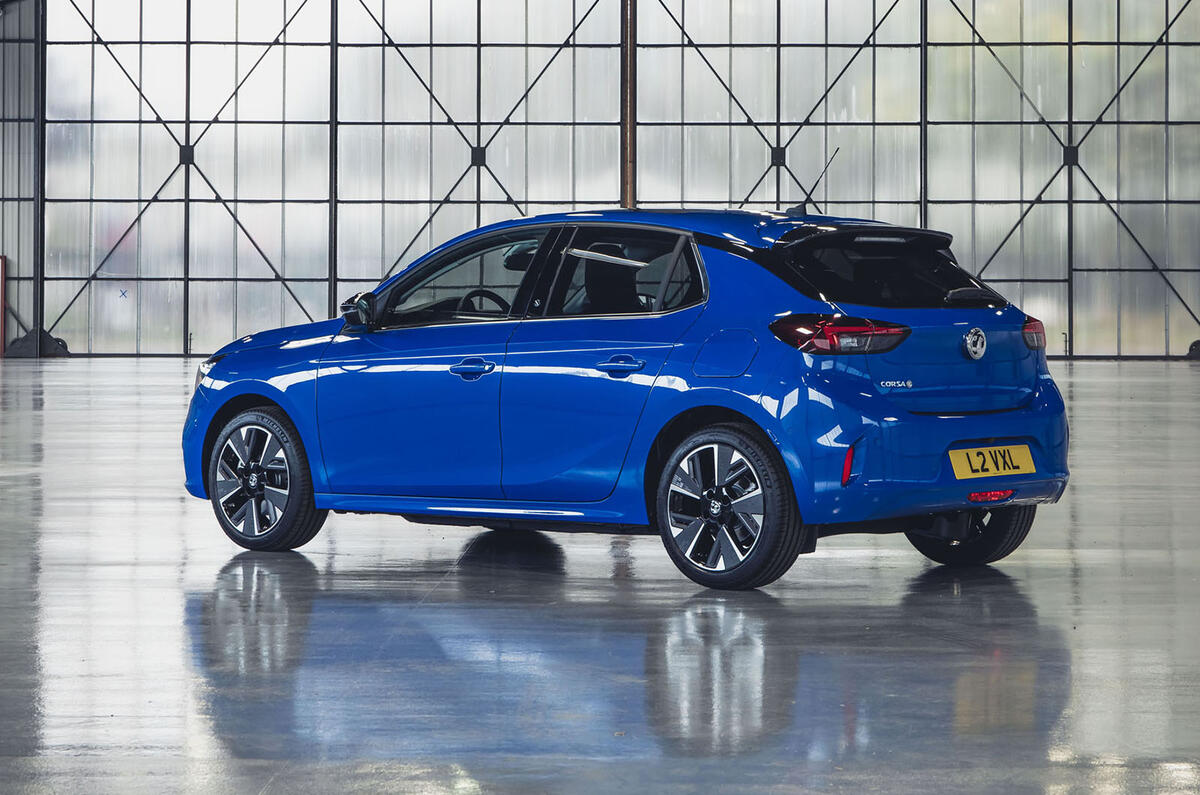
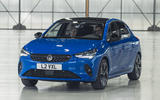






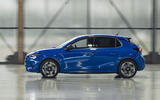
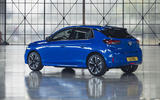






Join the debate
Add your comment
Worst of worlds?
Making an electric car so that it has the same layout as an IC engined car seems like the worst of all worlds to me. If, like Jaguar, you design a car to be electric, you free up lots of space in some places, like where the engine would traditionally go, and lose some to the batteries. By basing it on an IC car, you have lots of space taken up by an absent engine, and lots of space taken up by batteries.
Surely they could have replaced the radiator grill with something else as it won't need a radiator.
Economics Scoobman?
You're probably right that it's not ideal, but I think it will be a while before the mainstream mass market manufacturers are brave enough to take a punt like that. Even the Leaf and Zoe have pretty traditional dimensions. The approach PSA have taken seems to be about as low risk as possible, with a fraction of the capital investment that VAG have put in for instance. If this is a success then they can hopefully afford to be a bit more ambitious next time.
How did this guy's name get
How did this guy's name get past Autocar's sweary filter?
Though this was Sniff Petrol for a moment
On a different note, this is a car I would actually quite like. Beautifully unassuming but seemingly very capable. I hope it's as good as it appears.
michael knight wrote:
The same reason your post did...moron, juvenile, inadequate.